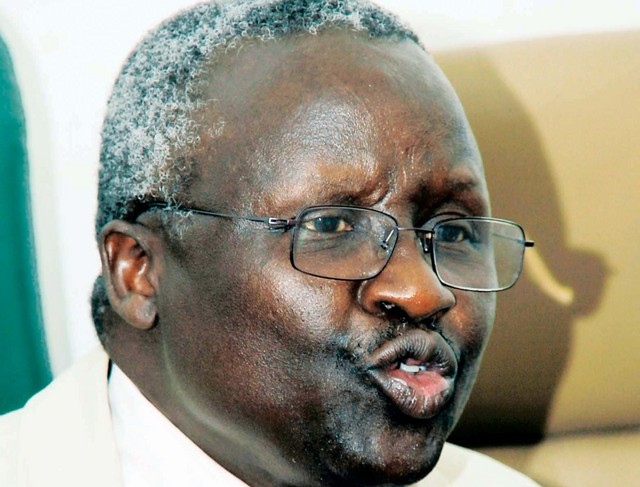Lawmakers in South Sudan have questioned the government’s failure to convene cabinet meetings for eight months, raising concerns over how the country is being managed amid delays in approving the national budget.
Atem Garang, a lawmaker representing Jonglei State, told parliament on Thursday that the executive had not held a single cabinet session since March, despite recent assurances by Cabinet Affairs Minister Martin Elia Lomuro that meetings would soon resume.
“My question to the Minister of Parliamentary Affairs is: since March this year, the Council of Ministers has not been meeting. Can you confirm if this is true? And if it is, how is the country being run?” Garang asked during a parliamentary sitting.
Garang is also a senior member of the ruling Sudan People’s Liberation Movement (SPLM).
The Jonglei lawmaker also questioned the government’s financial management, asking whether the suspension of cabinet meetings since March was the reason no annual budget had been passed to date.
“I want to know if there is money in the country or not, and whether the lack of cabinet meetings is the reason we don’t have a national budget,” he said.
Garang further asked who is currently funding Ugandan troops stationed near Juba when there was no clarity about the government’s financial status.
Responding to the questions, Parliamentary Affairs Minister Wek Mamer defended the executive, saying it has the constitutional autonomy to determine when and how to conduct its business.
“Regarding the cabinet, it’s a procedural matter relating to the laws governing that arm of government. Just as the executive does not question parliament when it is not sitting, the same principle applies,” Mamer said, adding that cabinet meetings would resume soon.
Responding to concerns about the funding of Ugandan forces in Juba, Parliamentary Affairs Minister Mamer said only the president could answer that question.
Cabinet Affairs Minister Lomuro had earlier told the peace monitoring body RJMEC on October 7 that cabinet sessions would resume “within a week.” However, no meetings have been held since then.
Lomuro has dismissed suggestions that the suspension of cabinet meetings is linked to political tensions following the arrest of First Vice President Riek Machar in March. On 7 October, Minister Lomuro said renovations in the council hall were the cause of the delay but noted that preparations were underway to hold meetings in a temporary venue within a week.
The Council of Ministers — the country’s top executive body chaired by President Salva Kiir or First Vice President Machar — last convened in March.
Observers say the prolonged absence of cabinet sessions has stalled key government business, including the tabling and passage of the 2025/26 national budget, which was due in July.
Machar is currently facing treason charges in a special court in Juba, while President Kiir has been in the United Arab Emirates for nearly a week.
Some lawmakers and governance experts have warned that the government’s failure to convene cabinet sittings is contributing to delays in policy implementation and economic planning.
Transitional National Legislative Assembly Speaker Jemma Nunu Kumba acknowledged the delays, saying South Sudan was behind schedule compared with other East African Community member states. However, she assured lawmakers that the 2025/26 budget would still be passed.
“We’re definitely behind schedule, especially compared to other East African countries,” Kumba said. “But even if we’re late, the budget can still be passed to make it legal and for the government to function.”
Kumba said parliament was awaiting the return of Finance Minister Athian Diing Athian, who is currently abroad, to clarify when the national budget would be tabled.
“The initiation of the budget is the function of the executive,” she said. “Parliament’s role begins once the document is brought before the house.”
South Sudan is governed under a 2018 peace agreement signed by President Kiir, opposition leader Machar, and other political leaders, which ended a devastating civil war that erupted in December 2013. However, the agreement’s implementation has been slow, with delays in drafting a permanent constitution, unifying the armed forces, and preparing for elections now scheduled for December 2026.




